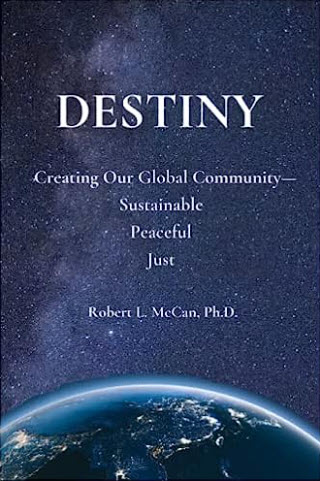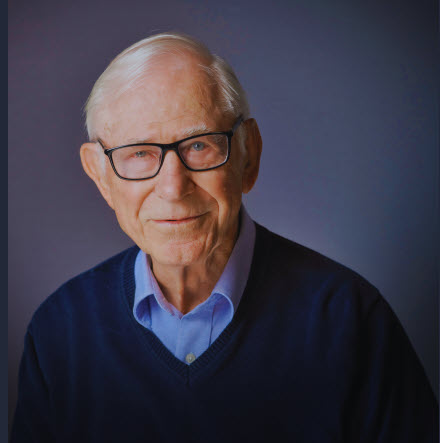
Destiny: Creating Our Global Community
Sustainable, Peaceful, Just
by Robert L. McCan
The purpose of this book is to help readers reimagine the world we want to create, and then inspire commitment to achieve it.
I was 94 years old when I began to write this book and 98 when it was concluded. Often over the years, I taught seminars on the topic “This I Believe,” in which I sought to help participants examine their own deepest belief systems. I started this book with a felt need to up-date my own deepest beliefs. This resulted in a single first page, “My Great Affirmation.” The book emerged from this seed vision — and from almost a century-long life of asking deeply how we can learn to live together, with “liberty and justice for all.”

My Great Affirmation
I am a member of the family called Human.
My home is Planet Earth.
The achievements of Humankind
throughout the ages are my heritage.
My highest priority is the common global good.
We choose to make war obsolete
and nuclear weapons relics,
as we rebalance the thin membrane
of atmosphere around Planet Earth.
Only as we lift others up,
rather than tear others down,
can our survival and destiny be realized.
We create a governing structure,
a United States of Earth,
that makes our planet One—
Sustainable, Peaceful, Just.
Our destiny is bound to that of all humanity
and the web of life on Planet Earth.
What we create together forms our bequest
to the next thousand generations.